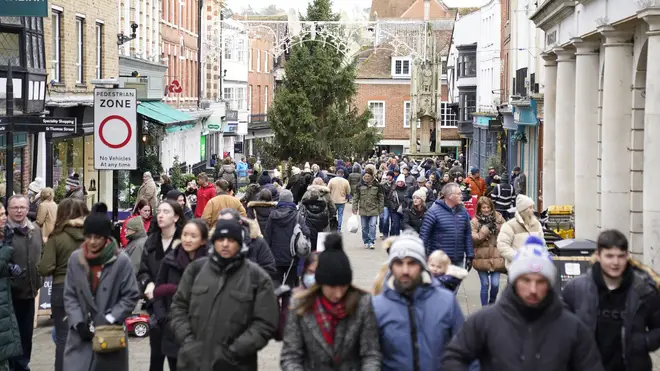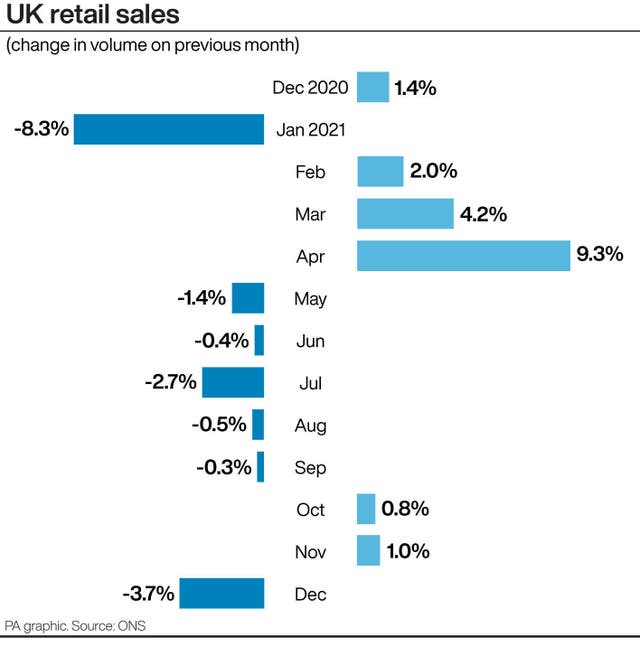
Paul Brand 7am - 10am
21 January 2022, 10:34

Sales volumes fell 3.7% in December compared with a 1% rise in November as shoppers stayed away from the high street.
Retail sales volumes fell last month as the spread of Omicron kept shoppers away from stores, although they remain around pre-pandemic levels, according to official figures.
The Office for National Statistics (ONS) said sales fell 3.7% in December – the biggest monthly fall since January 2021 – compared to a rise of 1% in November.
Officials also suggested the fall was due to shoppers getting their gift-buying done earlier in November to avoid disappointment due to supply chain disruption.

Non-food stores took some of the hardest hits, with volumes dropping 7.1% across department stores, clothes stores and homewares businesses.
There was also a 4.7% drop in fuel sales last month, as Plan B restrictions saw a return to work-from-home rules and fewer people travelled as the Omicron variant led to large numbers of households self-isolating.
Food stores sales also fell by 1%, although they remained 2% above pre-pandemic levels.
Data showed the number of shoppers heading to physical stores was below normal expectations for the busy festive period, with the ONS pointing out that footfall levels were just 81% of the levels seen in the week leading up to Christmas 2019.
By comparison, the proportion of online sales rose slightly in the month from 26.3% of total sales in November to 26.6% in December.
ONS deputy director for surveys and economic indicators Heather Bovill said: “After strong pre-Christmas trading in November, retail sales fell across the board in December, with feedback from retailers suggesting Omicron impacted on footfall.
“As Plan B restrictions in England meant more people working from home, there was a notable fall for fuel sales.
“However, despite the fall in December, retail sales are still stronger than before the pandemic, with over a quarter of sales now made online.”
Helen Dickinson, chief executive of the British Retail Consortium (BRC), said: “The spread of Omicron may have slowed Christmas spending, but the perseverance of retailers helped deliver a successful Christmas for consumers.”
She added: “Customers face strong headwinds in 2022, with energy prices and National Insurance contributions both set to rise.
“The remaining disposable income also faces greater competition from a resurgence in tourism, eating out, sport and live music.
“Rising inflation is reducing consumer demand while increasing the costs for businesses.
“Retailers face rising wage bills, increased transport costs, and increased checks and documentation as a result of new import controls, all of which are forcing up prices at the checkout.”